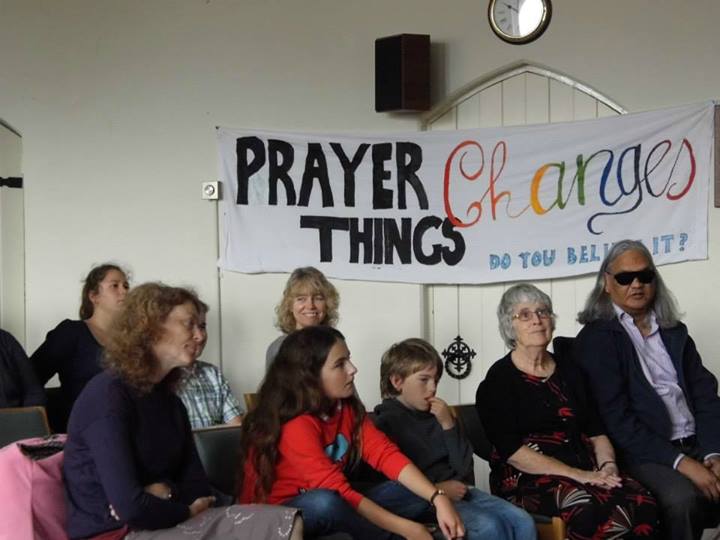Normally the Divine Creator provided enough food in the vegetable world.
However, not all fruits were to be eaten like that either. God had provided two trees in the Garden of Eden that man had to keep away from. But the mannin or 1st woman found this difficult and wished to be like God and be able to do things He could. She also tempted her husband, who went along with her story. They ate of the fruit of the “Tree of Knowledge of good and evil” (or Tree of moral) and gained insight into their futility and fragility. After they became aware of their mistake they hid from God at first, but after He found them and gave them another chance to be honest He placed them out of the Garden of Eden. From then on, it was not so easy for man to earn a living and he had to work for his food. At that time though, man was still aware that he should not inflict harm on any sentient creature.
As time progressed, humans began to crave more and/or become more greedy. Man was no longer content to just eat fruit and vegetables, and longed to eat things with flesh and blood. After some time man wanted also to eat ‘living beings‘ by which he first went for animals. In later years, certain peoples also came to eat other human beings, though that is not what God wanted.
The wrong ideaa lot of people have about the People of God is that because they offered sacrifices that they would have eaten regularly meat. But that is not so. The offerings of pigeons and lambs in the Old Testament were done as an act of repenting, giving to God what He had given to them, showing that they could take distance from it and showing gratitude to the Elohim, but this also in a way that they showed respect for life.
Ascetic Jewish groups and some early Christian leaders disapproved of eating meat as gluttonous, cruel and not according to the Torah. Some Christian monastic orders ruled out flesh eating, and its avoidance has been, for several centuries, a penance and a spiritual exercise even for laypersons.
Today for many people, it is very difficult to go back to the origin of God’s Wishes. In a certain way, it would not be bad for man himself and for nature, when we would come to eat again those things the Elohim had in mind for our food.
Because man wanted to eat more and more meat, the flesh or other edible parts of animals, he had to replenish his meat supply and watched his livestock grow bigger and bigger, with those animals eating grass from deforested fields and thus being less able to purify the air, while their pee and poo polluted the air more. Thus, the world was burdened to a great extent, which would not have happened had he kept to God’s first thought.
The 17th and 18th centuries in Europe were characterized by a greater interest in humanitarianism and the idea of moral progress, and sensitivity to animal suffering was accordingly revived. There were several philosophes, and Protestant groups that came to promote and adopt a fleshless diet as part of the goal of leading a perfectly sinless life.
In the late 18th century the utilitarian philosopher Jeremy Bentham asserted that the suffering of animals, like the suffering of humans, was worthy of moral consideration, and he regarded cruelty to animals as analogous to racism.
It should not surprise us that the first vegetarian society was formed in England in 1847 by the Bible Christian movement, founded by William Cowherd in Salford, North West England in 1809. Those Bible Christians put great emphasis on the independence of mind and freedom of belief, stating that they did not presume
“to exercise any dominion over the faith or conscience of men.”
Their idea of and believe in free will and that the original sin did not taint human nature and that humans by divine grace have free will to achieve human perfection, made many consider the Bible Christian Church to be a sect. The Bible Christian Church (1815) was a dissident group of Wesleyan Methodists desiring effective biblical education, a presbyterian form of church government, and the participation of women in the ministry. The group, having a Pelagian approach, originated in Devonshire and spread to Canada (1831), the United States (1846), and Australia (1850), although O’Bryan left the society over administrative differences and began an itinerant evangelism in the United States (1831). The Bible Christians joined with other dissident Methodist groups in 1907 to form the United Methodist Church.
Today, vegetarianism and veganism have changed roles for many.
Veganism denotes a philosophy and way of living which seeks to exclude, as far as possible and practical, all forms of exploitation of, and cruelty to, animals for food, clothing, or any other purpose. It also promotes the development and use of animal-free alternatives for the benefit of humans, animals, and the environment.
writes Hesh Goldstein in the NaturalNewsBlogs about health: How and why I chose veganism. She continues
The word “vegan” is newer and more challenging than “vegetarian”. “Vegan” includes every sentient being in its circle of concern and addresses all forms of unnecessary cruelty from an essentially ethical perspective. With a motivation of compassion rather than health or purity, “vegan” points to an ancient idea that has been articulated for many centuries, especially in the world’s spiritual traditions.
“Vegan” indicates a mentality of expansive inclusiveness and is able to embrace science and virtually all religions because it is a manifestation of the yearning for universal peace, justice, wisdom and freedom. {How and why I chose veganism}
We as humans should not think that everything is just ours and can be used by us as we see fit. We must realise that the Creator of the universe has loaned us the world. We are allowed to name and use things there ourselves. But that use should be done with respect. Just killing animals does not show respect at all.
We are therefore expected to have the right attitude towards how we treat things around us.
It is nice to see that there is a new trend and that the contemporary vegan movement is founded on loving-kindness and mindfulness of our effects on others. Hesh Goldstein finds it revolutionary
because it transcends and renounces the violent core of the “herding culture” in which we live. It is founded on living the truth of interconnectedness and thereby minimizing the suffering we impose on animals, humans and bio-systems; it frees us all from the slavery of becoming mere commodities. {How and why I chose veganism}
We must recognise it has become time we reorganise ourselves and find ways to come back in balance with nature.
The suppression of awareness required by our universal practice of “commodifying”, enslaving, and killing animals for food generates the built-in mental disorder of denial that drives us toward the destruction, not only of ourselves, but of other living creatures and systems of this earth.
Because of this practice of exploiting and brutalizing animals for food has come to be regarded as normal, natural and unavoidable, it has become invisible. Eating animals is thus an unrecognized foundation of consumerism, the pseudo-religion of our modern world. Because our greatest desensitization involves eating, we inevitably become desensitized consumers devoid of compassion and caring little of how what is on our plate got there. {How and why I chose veganism}
+
Preceding
A bird’s eye and reflecting from within
Warm-blooded, feathered vertebrates
Away with it oh no! – Weg er mee, oh neen
Looking at man’s closest friend
Having a problem with wonkiness…
Do you feel or love writing about Food
++
Find also to read
- Man was created to be a vegetarian
- The figure of Eve
- We won’t cut meat-eating until we put the planet before profit
- Seed banks: the last line of defense against a global food crisis
- Welfare state and Poverty in Flanders #10 Health
- Welfare state and Poverty in Flanders #12 Conclusion
- Ecological economics in the stomach #3 Food and Populace
- Today’s thought “Killing and eating” (January 05)
- Today’s thought “Allowed to have dominion over the universe” (January 02)
- Today’s thought “Rooted and built up in him” (November 14)
- Food as a Therapeutic Aid
- Cap 3000 a Valhalla blinding consumers
+++
Related
- There’s No Such Thing as a Perfect Diet
- Turmoil is coming for Meat
- These you tube people got me healthier than I ever imagined! Check it out!
- 35% off allplants discount code – delicious vegan plant-based ready meals
- We’re in a nation-wide meat shortage — here’s who to blame and why
- Vegan in Key West and a Vegetarian View of the Biblical Sacrifices
- The thread about the early history of vegetarianism in Edinburgh; the pioneering café that was a haven for suffragettes and the tragic demise of its idealistic founder
- Japan Was Once A Nation of Vegetarians
- The Anthropomorphic Life
- Book Review: Eating Animals by Jonathan Safran Foer | (And Why I Stopped Eating Animals)
- Animal Rights
- World Vegetarian Day
- Bharat’s diet found to be healthy, West Africans have the healthiest diet: study
- Reversing Disease with the GAPS Diet.
- My Story: A Former Pescatarian
- September 2022: ‘The Little Book of Hygge’ + How To Feed A Vegetarian
- Famous vegetarians and their favorite recipes
- Starting a Vegetarian Diet
- My truth on vegetarianism
- Vegetarian Challenge
- Make a Veg Pledge
- World Vegan Day
- Vegetarianism beyond plant and flesh
- The Rise of Plant-Forward Diets: How Consumers Are Changing Their Eating Habits
- Veganizing Bangladesh
- Parsi Veg Food? Yes, It’s A Thing!
- Debunking the frequent fallacies of veganism.
- Can Being Vegetarian & Practising Mindfulness Of Buddha Avert Pandemics?
- day 3: vegetarianism
- The Flexitarian Diet: The Best Diet for Sustained Weight Loss?
- Why I don’t eat meat on Tuesdays, Thursdays and Saturdays
- Meat
- The Ethics of Eating Animals
- Vegetarian women a third more likely to experience later life hip fracture, study finds
- Study Finds That Vegetarian-Vegan Middle-Aged Women Are 33% Are More Likely To Fracture Their Hip Than Meat Eaters
- We probably shouldn’t do anything about wild animal suffering
- Meat industry propaganda and the climate crisis






















































Pingback: About Human Nature – Some View on the World
Pingback: If God is so good, then why do bad things happen? – Some View on the World
Pingback: Preachers belonging to the Whore of Babylon calling Judeo-Christians the anti-Christ | From guestwriters
Pingback: 2 Trees of Eden – Jeshuaisten / Jeshuaists